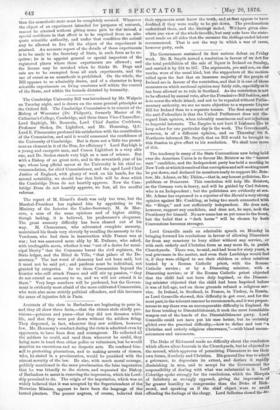The report of M. Ricard's death was only too true,
but the Marshal-President has replaced him by appointing to the Ministry of the Interior the Under-Secretary, M. de Mar- cere, a man of the same opinions and of higher ability, though lacking, it is believed, his predecessor's eloquence. The great amnesty difficulty has been cleared out of his way. M. Clemenceau, who advocated complete amnesty, maintained his thesis very cleverly by recalling the amnesty to the Vendeans, who had risen in insurrection while France was at war ; but was answered more ably by M. Dufaure, who asked, with irrefragable scorn, whether it was "out of a desire for muni- cipal liberty" that the Commune burnt the civil registers, the State ledger, and the Hatel de Vile, "that palace of the De- mocracy." The last word of clemency had not been said, but it must not be said yet ; and pardons must be individual, not granted by categories. As to those Communists beyond the frontier who still attack France and still stir up passion, "they do not extend an amnesty to us, and we will not extend it to them." Very large numbers will be pardoned, but the Govern- ment is evidently most afraid of the more cultivated Communists, who were also more strictly political offenders, and this increases the sense of injustice felt in Paris.






























 Previous page
Previous page